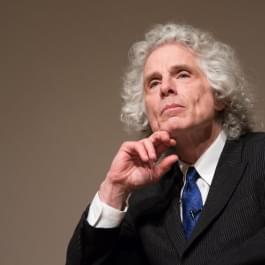
The Michael Shermer Show
The Michael Shermer Show is a series of long-form conversations between Dr. Michael Shermer and leading scientists, philosophers, historians, scholars, writers and thinkers about the most important issues of our time.
Show episodes
What do you do when someone believes you shouldn't exist? Daryl Davis didn't protest. He didn't shout. He sat down, asked questions, and kept showing up. Over decades, that approach has led more than 200 Ku Klux Klan members and white supremacists to walk away from their robes for good. In this conversation, Davis expl
Open inquiry depends on the ability to ask uncomfortable questions and follow evidence wherever it leads. Eric Kaufmann argues that this norm is now under strain. Drawing on history, survey data, and political theory, Kaufmann outlines how certain identity categories came to be treated as morally sacred—and how that sh
Brain-computer interfaces are moving out of the lab and into real medical use. In this episode of The Michael Shermer Show, Michael Shermer talks with Dr. Matt Angle, founder and CEO of Paradromics, a neurotechnology company developing one of the most advanced high-data-rate brain implants in the world, similar to Neur
At the turn of the 20th century, millions of Americans, including elite scientists, major newspapers, and cultural icons, were convinced that Mars was home to an advanced civilization. In this episode, Michael Shermer speaks with award-winning science journalist David Baron about one of the most astonishing episodes in
What if the great discoveries of science came in the "wrong" order? The Laws of Thermodynamics were discovered well after the creation of algebra, classical physics, and chemistry, but are perhaps much more important to our basic understanding of the universe. Chris Edwards argues that AI will be able to understand sci
Criminal profiling promises certainty in the face of horror: this is what a killer looks like, this is how they think, this is how we stop them. But what if that promise is mostly an illusion? In this episode, Michael Shermer is joined by journalist and author Rachel Corbett to dismantle the myths behind criminal profi





